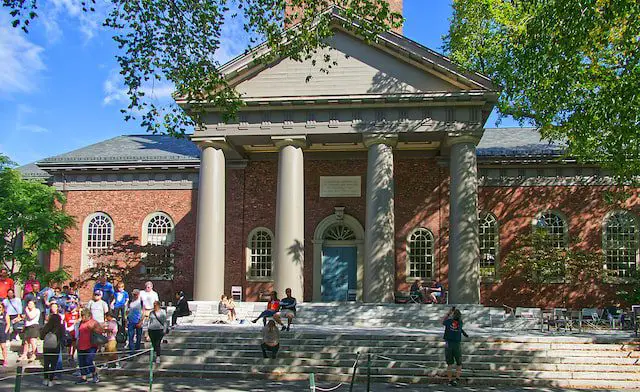
The Definition of a First Generation College Student
As the landscape of higher education continues to evolve, the term “first generation college student” has gained prominence. This term refers to individuals who are the first in their family to pursue a college education. Often, these students come from households where neither parent has obtained a bachelor’s degree. The concept of being a first generation student is not limited to any specific race, ethnicity, or socioeconomic background; it is a designation that applies regardless of these factors. Instead, it focuses on the achievement of breaking barriers within one’s own family and embarking on the journey of higher education.
Being a first generation college student comes with its unique set of challenges and considerations. These individuals often lack the familial support and guidance that their peers may receive, as their parents may not possess firsthand knowledge of the college application process, financial aid options, or even the intricacies of campus life. As a result, first generation college students frequently encounter feelings of uncertainty, self-doubt, and a sense of venturing into uncharted territory. Nevertheless, they exhibit a remarkable resiliency and determination to overcome these obstacles, driven by their determination to forge a new path for themselves and their families.
The Challenges Faced by First Generation College Students
First-generation college students face a myriad of challenges as they navigate their way through higher education. One significant challenge is the lack of familiarity with the college application process. Unlike their peers who come from families with prior college experience, first-generation students often have limited guidance and support in understanding the complex procedures of admissions, financial aid, and scholarship applications. As a result, they may feel overwhelmed and unsure about where to begin.
Another challenge for first-generation college students is the sense of isolation and cultural adjustment they may experience on campus. Many of these students come from low-income backgrounds or underrepresented communities, and they may find themselves in an unfamiliar academic environment. The pressure to succeed and prove themselves can be immense, especially when they are also dealing with the emotional and psychological effects of being the first in their family to pursue higher education. Additionally, there may be cultural differences and expectations that can further contribute to feelings of being out of place or disconnected from their peers.
The Importance of First Generation College Students at Harvard
First generation college students play a crucial role in the Harvard community. Their unique experiences and perspectives contribute to the diverse intellectual environment that is central to the university’s mission. These students bring a fresh and innovative outlook, challenging traditional norms and pushing the boundaries of knowledge. Their presence adds richness and depth to classroom discussions, fostering a vibrant and inclusive learning atmosphere.
Moreover, first generation college students at Harvard serve as powerful role models for future generations. By defying the odds and pursuing higher education, they inspire and motivate others from similar backgrounds to strive for academic success. Their achievements not only reflect their own determination and resilience, but also debunk stereotypes and dismantle barriers that hinder socio-economic mobility. By embracing their educational journey and embracing the opportunities at Harvard, these students boldly embody the transformative power of higher education.
Support Systems for First Generation College Students at Harvard
Support systems play a crucial role in the success of first-generation college students at Harvard. One important support system is the First Generation Student Union, a student-run organization that aims to provide a sense of community and support to these students. Through regular meetings and events, the union creates a space where first-generation college students can connect with each other, share experiences, and seek advice. This support system helps alleviate feelings of isolation and provides a support network that students can rely on throughout their time at Harvard.
In addition to the First Generation Student Union, Harvard also offers academic support services specifically designed for first-generation college students. These services include tutoring programs, study groups, and academic coaching. These resources provide the necessary guidance and assistance to help first-generation students navigate the challenges of college academics. By offering accessible and tailored support, Harvard ensures that its first-generation college students have the necessary tools and assistance to excel academically and achieve their goals.
Scholarships and Financial Aid Opportunities for First Generation College Students at Harvard
Scholarships and financial aid play a vital role in supporting the educational journey of first-generation college students at Harvard. These opportunities aim to alleviate the financial burden and ensure that these students have equal access to a quality education. Harvard offers a range of scholarships and grants specifically tailored to support first-generation college students, recognizing the unique challenges they may face.
One such opportunity is the First Generation Student Grant, which provides financial assistance to students who will be the first in their immediate family to earn a bachelor’s degree. This grant not only helps cover tuition costs but also assists with expenses such as textbooks, housing, and living expenses. Additionally, Harvard actively seeks external scholarships and partnerships to expand the financial aid resources available to these students, further opening doors to higher education and enabling them to focus on their academic pursuits without undue financial stress.
Mentorship Programs for First Generation College Students at Harvard
Mentorship programs at Harvard provide invaluable support and guidance to first generation college students. These programs aim to create a strong sense of community and offer personalized mentorship to help navigate the challenges unique to their college experience. Through one-on-one interactions, mentors offer academic guidance, career advice, and emotional support to empower these students to excel in their studies and beyond.
The mentorship programs facilitate the development of essential skills, such as time management and effective communication, which are crucial for success in the academic and professional realms. Mentors share their own experiences and insights, helping first generation college students overcome imposter syndrome and build confidence in their abilities. By fostering a supportive environment, mentorship programs at Harvard ensure that these students feel valued and included, empowering them to reach their full potential academically and in their future endeavors.
Academic Resources Available for First Generation College Students at Harvard
Academic resources play a crucial role in supporting the success of first generation college students at Harvard. The university offers a range of resources to ensure these students have a strong foundation for their academic journey. The Academic Resource Center (ARC) is a valuable resource that provides comprehensive support services, including tutoring, study skills workshops, and academic coaching. These resources empower first generation college students to develop effective study habits and enhance their learning capabilities. Additionally, Harvard libraries offer a vast collection of books, journals, and online resources, granting students access to extensive academic materials needed for their coursework. The libraries also offer research workshops and assistance to help students navigate the process of gathering information and conducting scholarly research. With these academic resources readily available, first generation college students at Harvard have ample opportunities to excel academically and achieve their educational goals.
In addition to the ARC and Harvard libraries, first generation college students at Harvard benefit from the dedicated faculty and staff who provide academic support and mentoring. Professors and teaching assistants offer office hours, during which students can seek clarification, discuss course materials, and receive guidance on their academic progress. The faculty’s commitment to nurturing students’ academic growth creates an inclusive and supportive learning environment for first generation college students. Furthermore, Harvard offers peer tutoring programs, where experienced students provide assistance to their fellow peers. These tutoring programs not only enhance students’ understanding of course content but also foster a sense of community and collaboration. By leveraging these academic resources, first generation college students at Harvard can thrive academically and realize their full potential.
Networking Opportunities for First Generation College Students at Harvard
Networking is a critical aspect of the college experience, especially for first-generation college students at Harvard. The university offers numerous opportunities for these students to connect with professionals, alumni, and peers who can provide valuable guidance and support. As part of their commitment to fostering a strong networking culture, Harvard hosts regular career fairs and networking events specifically tailored to first-generation students. These events allow students to interact with professionals from various industries, gain insights into different career paths, and expand their professional network. By participating in these activities, first-generation students are able to build connections that can lead to internships, job opportunities, and mentoring relationships, ultimately enhancing their post-graduation prospects.
In addition to formal events, Harvard also encourages networking through student organizations and affinity groups. These groups provide a supportive community for first-generation students and offer networking opportunities within specific fields of interest or identity-based communities. Whether it’s joining a professional club or aligning with an ethnic or cultural organization, these networks provide a platform for students to interact with like-minded peers and professionals who share similar experiences and aspirations. Engaging with these groups not only expands students’ networks but also provides access to resources, workshops, and guest speakers who can offer valuable insights and career advice. Through these interconnections, first-generation students at Harvard are given the chance to strengthen their professional network and create lasting bonds within their chosen fields.
Success Stories of First Generation College Students at Harvard
Many first-generation college students at Harvard have achieved remarkable success, defying the odds and proving that hard work and determination can lead to extraordinary accomplishments. These students, who are the first in their families to pursue higher education, have overcome numerous challenges and are now thriving in various fields. For instance, Johnathan Ramirez, a first-generation student from a low-income background, graduated with honors and went on to become a successful entrepreneur in the tech industry. His story serves as an inspiration to other first-generation college students, showing them that their dreams are attainable with perseverance and a solid education.
Another outstanding success story is that of Maria Patel, a first-generation college student who excelled in her studies at Harvard and later became a renowned civil rights attorney. Maria’s passion for social justice and her untiring dedication to fighting for equality have made her a role model for many aspiring first-generation college students. Her story demonstrates that the power of education can be harnessed to create positive change in society, regardless of one’s background. These success stories highlight the impact and potential of first-generation college students, proving that they not only belong at Harvard but also possess the abilities to excel in their chosen paths.
How Harvard Prepares First Generation College Students for the Future
At Harvard, preparing first-generation college students for the future is a top priority. The university recognizes the unique challenges that these students may face and offers a range of programs and resources to help them succeed. One key aspect of this preparation is providing mentorship opportunities. Through mentorship programs, first-generation students are paired with experienced mentors who can offer guidance, support, and advice throughout their college journey. These mentors serve as role models and provide valuable insights into navigating academic and career pathways.
In addition to mentorship, Harvard also provides various academic resources to ensure first-generation students have the necessary tools for success. The university offers tutoring services, study groups, and workshops specifically tailored to the needs of these students. These resources not only help students overcome any academic difficulties they may encounter but also empower them to excel academically. By providing these support systems, Harvard fosters a sense of belonging and empowers first-generation students to reach their full potential, setting them up for future success.

















